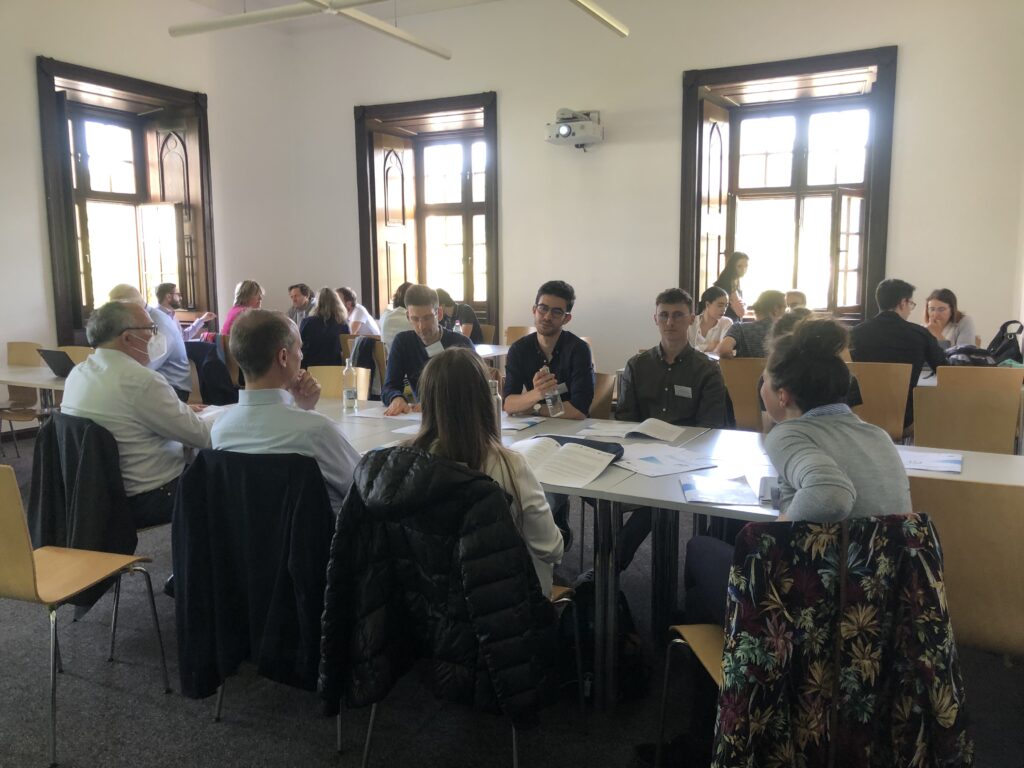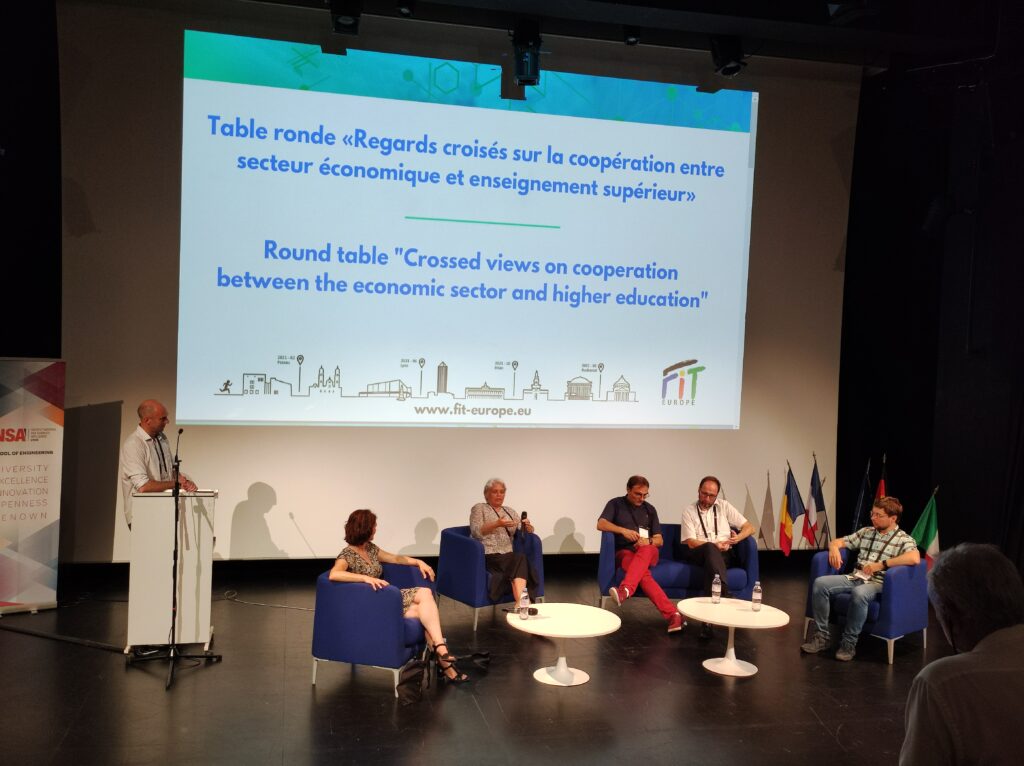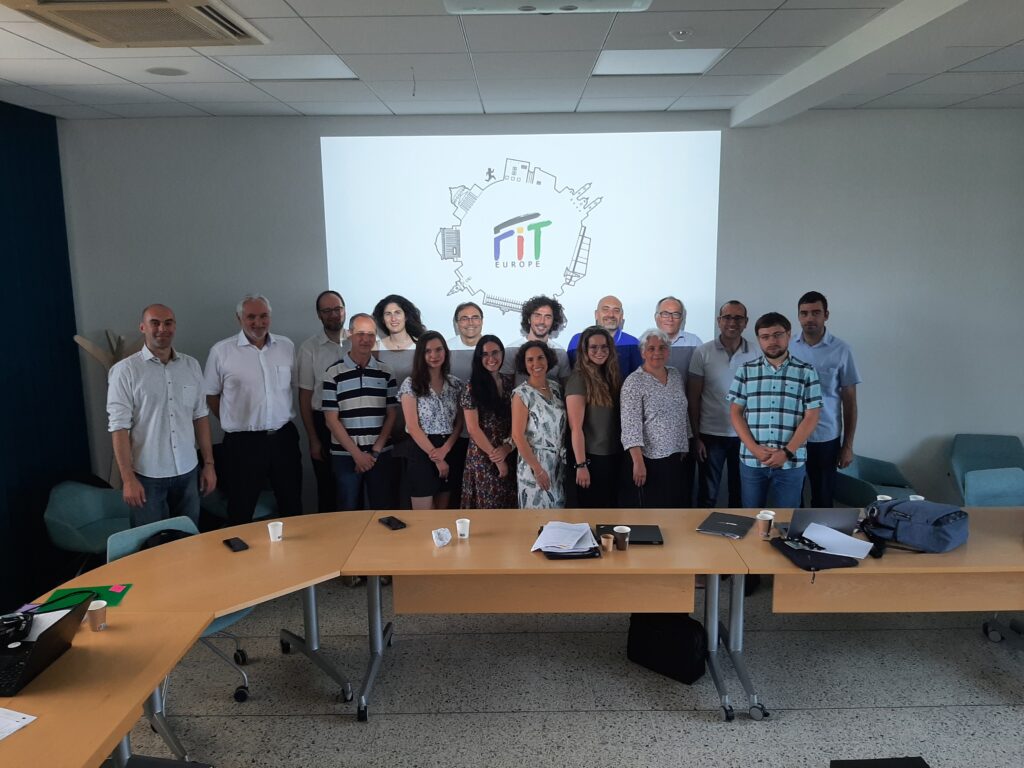

After three years of exchanges of new knowledges, skills, cultures and innovative ideas, the FIT Europe Project is coming to an end. But some questions are still raised: what can we learn about this rich experience? And above all, how to keep the spirit of FIT Europe alive even after his end?
These are the questions that all the partners of the project are now trying to answer, with Dissemination events first at a local level but also all together as a consortium.
At a local level, the University of Passau indeed invited on May 31st academic, industrial and political actors from all over Bavaria, as well as Students who participated in the project, to present them and reflect all together on the results of FIT Europe. But they were also invited to give an active contribution by answering the following question: how to train the future IT Leaders of tomorrow’s world?
The focus of the event was set on sustainability, as it is of course one of the main challenges of our future. On this issue, Stephanie Helmeth from the University of Applied Sciences of Munich delivered an insightful talk about « Sustainable Digitalization or Digitalization for Sustainability », that initiated fruitful discussions.
Sustainable digitalization is part of the many topics addressed during the intensive trainings given to the students in the frame of FIT Europe, interdiciplinarity being a key of the success of the Project. How to assess the success of the project ? The students who participated also gave their Feedback and confirmed it.
All the ingredients of this success can be found in the White Paper written by the consortium, a document gathering recommendations for Academia, Industry, Politics and Accreditation bodies and intended for the European Leaders. This White Paper, that was also presented to the audience, was the starting point of the main activity of the event. The participants were not only there to listen to these great results, but also to help completing them. For this, they were divided into three Workshops focusing on three key topics in FIT Europe :
- The cooperation between Academia and Industry, animated by Prof. Harald Kosch from Uni Passau,
- The creation of innovative academic curricula animated by Prof. Lionel Brunie from INSA Lyon,
- And the lessons from a European/international scale project animated by Axelle Cheney, Strategic Advisor to University Vice-Presidents for Europe and Research in Passau.

Thus, Professors, Industry and Start-up members as well as Students exchanged all together to give their insight on these topics. Followed thought-provoking discussions that will undoubtedly enrich the final report on FIT Europe that the consortium will deliver in September to the European institutions.
Two weeks later, on June 15th and 16th, all the partners met one last time in Lyon in France for the final Transnational Meeting of the Consortium and for the main Dissemination event of the project, INSA Lyon being the project coordinator.
Thus after speeches acknowledging the great success of FIT Europe from the President of INSA, Prof. Frédéric Fotiadu, and the President of the University of Passau, Prof. Ulrich Bartosch, Prof. Lionel Brunie from INSA explained the audience the spirit of the project, followed by Dorothée Brac de la Perrière, project Manager at INSA, who presented the origins of the consortium, born of a friendship between Prof. Kosch and Prof. Brunie. The consortium was completed later by Prof. Cimato from Uni Milano and Dr. Olaru from Politehnica Bucharest, who both then gave their Feedback on the project, along with Roland Wossidlo from ATOS, industrial partner of Uni Passau, and Oanna Cramariuc from CIST, industrial partner of Politehnica Bucharest. All of them exchanged in a round table their views from the inside of the project.
These testimonies were completed by the one of a special student, Marco Pedrinazzi, special because he is the only student having participated in the four Seminars of FIT Europe, a regular participation rewarded by a special diploma. He could talk about the large variety of topics addressed and the gathering of students and speakers of all nationalities and backgrounds.
In an open discussion, participants then debated about the cooperation between the economic sector and higher education, in the presence of Juliette Jarry, vice president of the Auvergne Rhône Alpes regional council, responsible for infrastructure, the economy and digital uses from 2016 to 2021 (Digital Region Campus), who gave her experience in accompanying schools in their reflexion on entrepreneurship and about projects around the digital transformation of companies.
Finally, after this global discussion, participants were divided into two Workshops. One dealt with innovative trainings created with use cases from start-ups, animated by Prof. Brunie and Prof. Kosch. And the other was about how higher education takes advantage of European and international devices to cooperate with industrial partners. Those exchanges were then reported around a cocktail closing the event.
Despite the end of the project, the consortium is convinced that this is not the end of their cooperation and is already working on new ideas to continue delivering innovative curricula to students answering their needs and the needs of the future.

